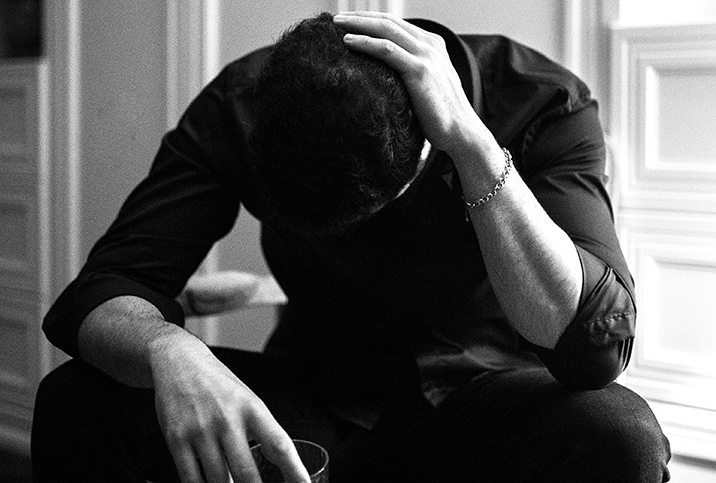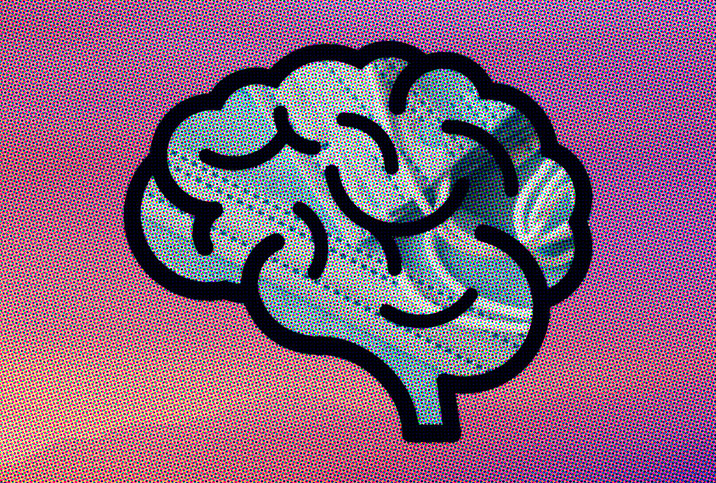Guilt and Low Self-Esteem Deflate Erectile Function

"There's no problem so awful that you can't add some guilt to it and make it even worse." Or so said Bill Watterson, the creator of the beloved comic strip Calvin and Hobbes.
While we're pretty sure Watterson wasn't referring to the problem of erectile dysfunction (ED), the comment is applicable to the condition that affects at least 30 million men in the United States.
The science around ED has come a long way in recent decades, both in understanding it and treating it. Of course, the changes brought about by the development of sildenafil (Viagra), tadalafil (Cialis) and other erectile drugs are life-altering for millions of men.
Not only that, but modern medical practitioners also understand the complex interplay of physiological and psychological factors that contribute to ED better than ever before, and they have strategies to work through the problems caused by these factors, including interrelated issues such as guilt and low self-esteem.
What are guilt and low self-esteem?
Typically defined as a negative emotion directed at the self, guilt is sometimes described as a reflective or self-conscious emotion. You feel bad for acts you may have committed, for not doing things you feel you should have done or for having thoughts you see as morally wrong.
Guilt sometimes has a social component: We may judge ourselves as "bad" based on something to do with another person or perceived societal judgment.
Low self-esteem is a close relative of guilt. It's also a set of feelings directed at ourselves, sometimes through the lens of others, where we tend to do any of the following:
- See ourselves as unworthy
- Negatively compare ourselves to others
- Have trouble asking for what we need
- Lack confidence
- Blame ourselves for every problem
- Try to be perfect
- Try to be people-pleasers
Why do emotions affect erections?
We sometimes forget that emotions and organs inhabit the same machine. After all, the brain sends the signals that trigger a sexual response. If the ship's captain is distracted by depression, guilt or anxiety, the rudder may not always point to where you want to go.
Emotions and sexual organs are clearly related, said Amy Pearlman, M.D., a urologist and the director of men's health at University of Iowa Health Care's Carver College of Medicine.
"If we feel sad, excited, frustrated, anxious or depressed, our genitals don't need to work in those scenarios," she said. "When we feel those emotions, those are chemical reactions that are occurring in our body that are sending physical signals to our genital parts. Even if my own anatomy is completely structurally and functionally normal, if I'm feeling sad, I'm not going to be able to orgasm."
Guilt, low self-esteem and shame
Remember, guilt and low self-esteem aren't always standalone feelings. They often function as part of an array of emotions, all of which are known to hamper sexual function.
Diagnostic and Statistical Manual of Mental Disorders (DSM-5) lists inappropriate guilt and feelings of worthlessness (i.e., low self-esteem) among the clinical criteria for diagnosing a major depressive disorder.
If you delve deeper into these feelings, you often uncover another related emotion: shame.
"Guilt is the idea that 'I've done something bad,' and shame is 'I am bad,'" said Jenn Bossio, Ph.D., a clinical psychologist and sex therapist who is the director of the Trihealth Clinic in Kingston, Ontario. "Oftentimes, it starts off as guilt, as in 'I've done something bad,' and that can be relatively easy to deal with: We take ownership of the things that we've done, we have a bit of self-compassion and we recognize that we're going to make mistakes."
When guilt curdles into shame, however, and it isn't particular actions we consider bad but rather our very selves, working through these feelings can prove to be more of a challenge, she said.
"The shame piece can be a bit more sticky, because then it gets to this core idea of self-worth, where 'I am bad,'" Bossio said. "That can be a little harder to process."
Then there's the sex
For many people, sex is often wrapped up in feelings such as shame and guilt, frequently in quite complicated ways.
"Oftentimes, the guilt and shame is a big piece of the treatment and what we do," Bossio said. "It is so ubiquitous, and people put so much pressure on themselves and feel like they're doing something wrong. Just taking that responsibility off of our shoulders is really important."
One way Bossio and her team help men with these issues is to talk about the dangers of externalizing our sense of self-worth, which is a major component of healthy versus unhealthy self-esteem.
"Men are so often socialized to feel that they get their self-worth from being the prototypical masculine man: The more people they can have sex with, the more sexual prowess they can show, the better they can perform, where they are totally responsible for their partners' pleasure—and all of those things are totally unrealistic expectations," Bossio said.
'Nobody can perform 100 percent of the time. Even if they're super into their partner and they find them very sexy, the body doesn't care about that necessarily.'
Another important component of shedding guilt and shame around sex is to understand that if sex doesn't work out sometimes, it isn't your fault. Men often trap themselves into negative feedback loops that perpetuate negative sexual outcomes, she said.
"'So if I can't maintain my erection, then my partner is going to think I'm not attracted to them,'" Bossio said. "And they feel guilty or ashamed because of that. And what I remind men is we get erectile difficulties because we care about that person so much. The pressure is so high."
Then there's the physiological piece. Penises are fickle. Not every pitch is going to be a strike.
"Nobody can perform 100 percent of the time," Pearlman said. "Even if they're super into their partner and they find them very sexy and they want to get laid, the body doesn't care about that necessarily."
The takeaway is that guilt and low self-esteem are self-perpetuating feelings with which we tend to pummel ourselves over and over. Just forgiving ourselves more can make a huge difference, according to Bossio.
"There is some interesting research looking at self-esteem versus self-compassion," Bossio said. "Self-esteem as a target is actually not helpful, whereas being kind to ourselves is, because it returns an internal sense of the locus of control."


















